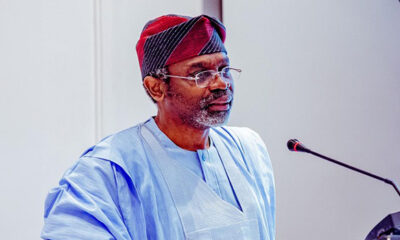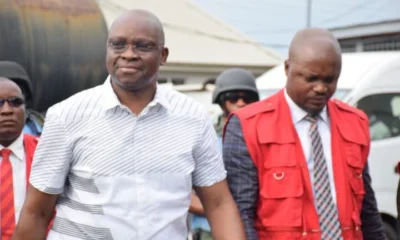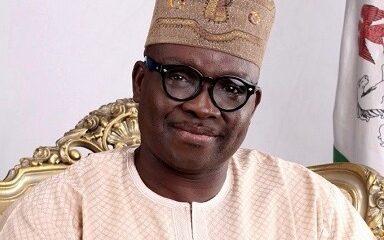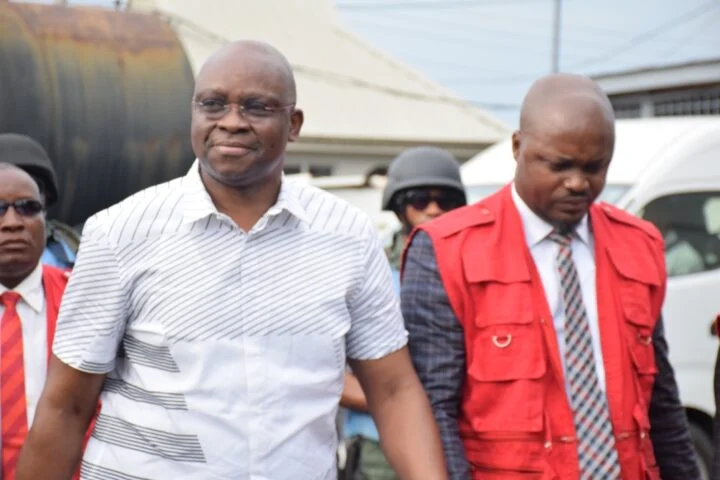The Economic and Financial Crimes Commission (EFCC) says it will challenge the judgment that cleared Ayodele Fayose, former governor of Ekiti state, of money laundering and fraud accusations.
In his decision on a no-case submission, Justice Chukwujekwu Aneke ruled that the prosecution did not provide enough evidence to require Fayose to present a defence.
After the judgment, EFCC counsel Rotimi Jacobs stated that the commission would obtain the certified judgment and begin the appeal process.
Fayose and his company, Spotless Investment Limited, had been re-arraigned on an 11-count charge of laundering ₦6.9 billion, allegedly during his time as governor.
The charges included allegations that Fayose received ₦1.2 billion for his 2014 campaign and accepted $5 million in cash from Obanikoro, bypassing standard banking procedures.
He was also accused of laundering several sums and using over ₦1.6 billion to purchase properties via proxies and firms such as De Privateer Ltd and Still Earth Ltd, contrary to the Money Laundering (Prohibition) Act, 2011.
During the May 19 no-case submission, Kanu Agabi, Fayose’s lawyer, argued that the prosecution failed to prove its case and pointed out that Abiodun Agbele, allegedly central to the transactions, wasn’t charged, which weakened the EFCC’s position.
“With due respect, the predicate offences do not hold water. Criminal breach of trust and conspiracy are distinct offences, and no co-conspirator was charged,” Agabi stated.
He asked the court to find that Fayose had no case to answer.
Olalekan Ojo, lawyer for the second defendant, also submitted a separate no-case application dated March 21, 2025, with supporting documents filed on May 16.
Ojo contended that the main evidence provided by the prosecution, particularly Obanikoro’s testimony, was unreliable since he confirmed there was no direct communication between Fayose and Sambo Dasuki, the former national security adviser.
Jacobs, however, urged the judge to dismiss the no-case submissions, arguing that there were unexplained financial activities that needed clarification.
He questioned why Fayose didn’t use his personal account if the money was legitimate, referencing EFCC investigator Abubakar Madaki’s claim that Fayose acquired properties through associates who later denied ownership, even though Fayose admitted the properties were his.
“If the money was clean, why not buy the properties in his name?” Jacobs asked.
He also referred to Obanikoro’s account that Fayose requested the money in cash and introduced Agbele to receive it, saying Fayose must explain these actions.
Despite these arguments, the court ruled in favour of the defendants and granted the no-case submission.

 BIG STORY2 days ago
BIG STORY2 days ago
 BIG STORY1 day ago
BIG STORY1 day ago
 BIG STORY2 days ago
BIG STORY2 days ago
 BIG STORY4 days ago
BIG STORY4 days ago
 BIG STORY2 days ago
BIG STORY2 days ago
 BIG STORY1 day ago
BIG STORY1 day ago
 BIG STORY1 day ago
BIG STORY1 day ago
 BIG STORY4 days ago
BIG STORY4 days ago
























